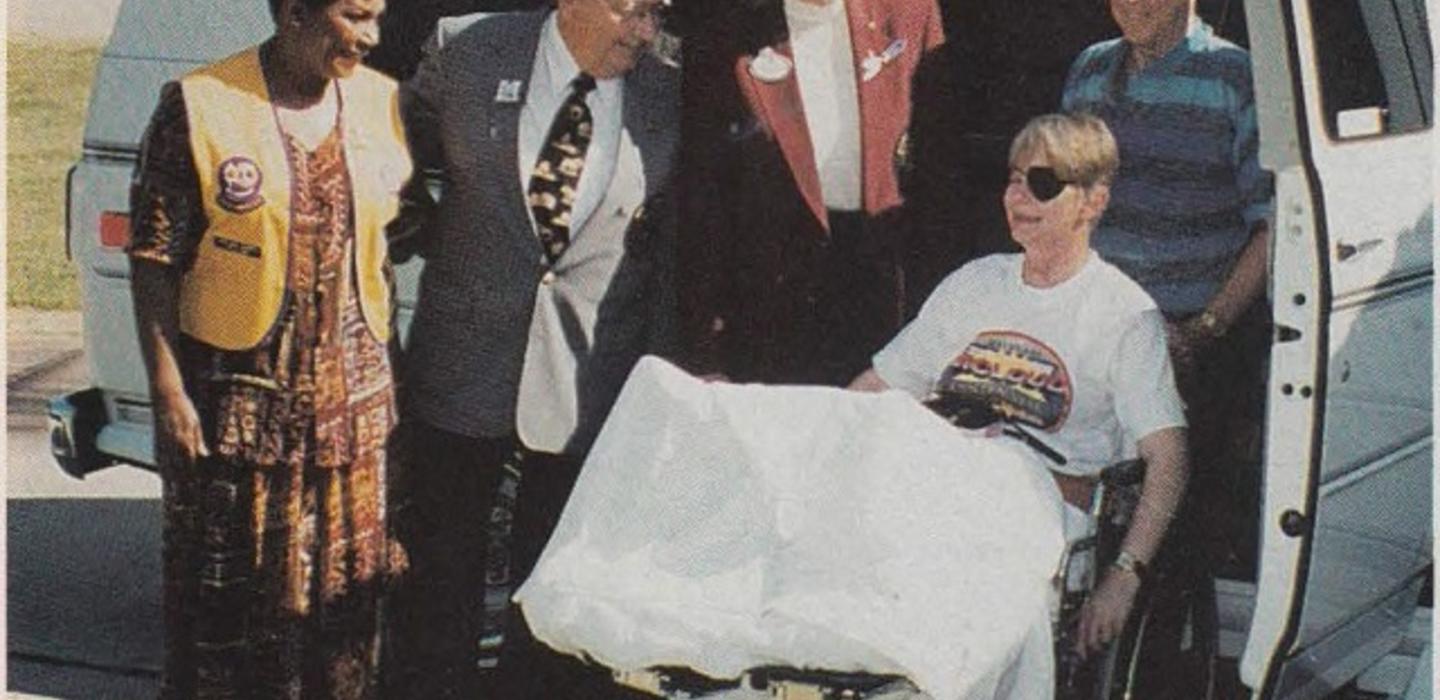Disasters occur with frightening regularity. There are earthquakes, floods, tsunamis and more.
On April 25, 2015, at 11:56 a.m. local time in Nepal, a 7.9 magnitude earthquake devastated parts of urban Bharatpur and Kathmandu and flattened entire villages elsewhere in the country. It also caused an avalanche on Mount Everest. More than 9,000 people were killed as a result of the quake and its aftershocks, with 21,000 injured and more than US$5 billion in property damage. It was the worst natural disaster to strike Nepal in nearly a century.
Within hours, as the local and international response was still forming and before the aftershocks had even happened, Lions Clubs International Foundation had issued a US$100,000 Major Catastrophe Grant and mobilized $4 million of contributions. At the same time, clubs around the world were preparing to send emergency medical supplies, food, fresh water, purifiers and temporary shelters to Nepal.
Three weeks after the quake, 2015-16 LCIF Chairperson Joe Preston wrote: “Mount Everest is only a few hundred kilometers north of Kathmandu. In 1924, the British Empire sent their renowned explorer, George Mallory, to make the first serious attempt to conquer the world’s tallest peak. When asked why he would make such a massive effort to climb the mountain, Mr. Mallory replied, “Because it’s there.”
Our task is very similar. Why should we make such a massive effort to help the survivors? Because they are there. Because they are still alive.
The Lions’ first response effort to help survivors in disasters such as in Nepal is fast. In 1950, Lions of Lima, Peru, were visiting Cusco when a magnitude 6 earthquake shook the city and destroyed homes. The Lima Lions immediately organized a relief operation on behalf of their Cusco brethren. In 1963, when a cyclone struck Pakistan and killed more than 10,000 people, local Lions established relief camps at nearby high schools and, in the months that followed, rebuilt devastated areas. In the wake of the Oklahoma City bombing on April 19, 1995, the Oklahoma City Helping Hands Lions Club immediately began to help those affected by the attacks.
Today, Lions continue to be on call when disaster strikes. The Lions ALERT Program is a plan of action to guide local Lions clubs in their response to events—those that affect a few people, and those that affect thousands. From maintaining local volunteer databases to offering training classes on emergency evacuation routes, the ALERT Program provides a road map for unforeseen situations.
Marilyn Gotcher, president of the Oklahoma City Helping Hands Lions Club in 1995, summed up how the Lions continue to view these tragedies: “Out of pain, suffering and sorrow, so much goodness can come.”
Explore the exciting history of Lions Clubs International with our exclusive Touchstone Stories series. Don't forget to share these stories with new members so they gain an understanding of Lions history!

